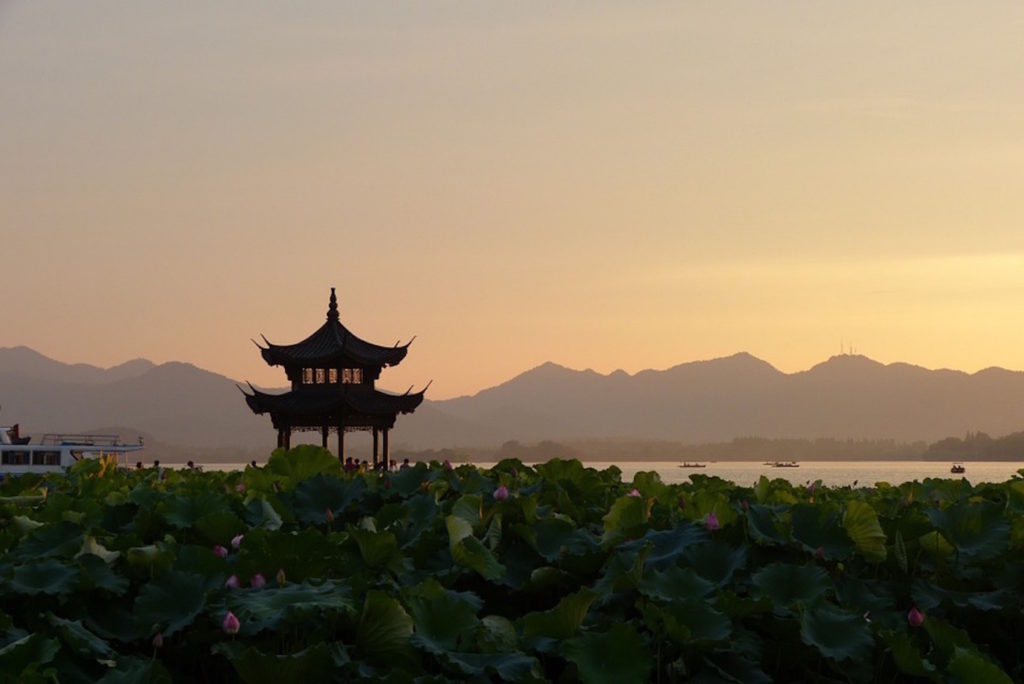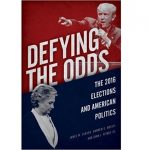Few pundits have earned the stature of Michael Burleigh, a prominent commentator for the British and international press. His prize-winning works on the Third Reich, religion, terrorism, and warfare have already become classics. The great value of his books—always meticulously researched and cogently argued—is that they serve an admirable moral purpose: to inspire readers to think for themselves, avoid ideological blindness, and carefully study complicated topics before making rash judgments about them.
Burleigh’s latest book, The Best of Times, the Worst of Times, exemplifies those strengths, providing an attentive “history of now,” to explain the most significant world events of the last fifteen years.
Throughout the book, Burleigh covers many vital topics, including the 2003 Iraq War and the 2008 financial crisis. He makes a strong moral case that the first was premature and violated just war principles; and that the second was equally preventable, though far more institutions and people were responsible—ranging from mercenary investment banks (“the biggest villains”) to over-eager consumers who took risks they never should have.
The reverberations of these two events have deepened social and political divisions around the globe. In Burleigh’s telling, such divisions create openings for a host of unsavory figures skilled at fomenting anger but not actually running anything—much less creating prosperous and peaceful societies.
Start your day with Public Discourse
Sign up and get our daily essays sent straight to your inbox.China: Xi Jinping
Burleigh’s sizable chapter on China is the centerpiece of his book, because so many geopolitical currents now revolve around Beijing. The emphasis on China is first illustrated on the arresting cover of the book, which displays the world’s three most powerful men—Xi Jinping, Vladimir Putin, and Donald Trump—in descending order. Xi’s placement at the top symbolizes China’s rising influence and its attempt to outmaneuver Russia and the United States for global domination.
A masterly historian, Burleigh successfully recounts the cultures, dynasties, and traumas that have left a lasting impact on China. As he shows, a high regard for China’s history, even to the point of sheer invention, is fundamental to the psyche of the country’s leaders. After visiting the pyramids in Egypt in 1996, for example, President Jiang Zemin “decided to add an extra thousand years” to arrive at the claim that Chinese civilization is 5,000 years old.
Like many countries, China blames the West for its travails. The last 150 years loom large in China’s self-narrative, since this period is regarded as a time of national “shame and humiliation” due to Western interference. Western colonizers undoubtedly exploited China, especially in the nineteenth and early twentieth centuries. Yet the sins Westerners committed against the Chinese pale in comparison to those inflicted by China’s Communists themselves. For example:
Some 70 million people are estimated to have died during Mao’s dictatorship, more than half from starvation in the Great Leap Forward of 1958-62, the worst man-made disaster in history . . . By the time of Mao’s death in 1976, average per capita GDP was $163, or a little more than that of Bangladesh ($140).
How China came back from this desolation is among the most fascinating aspects of Burleigh’s book. During the succeeding decade, China, though still rigorously Communist, took economic cues from non-Communist Japan, South Korea, and Taiwan, and quickly began to industrialize and urbanize. Many thought China’s sudden openness to the free market would naturally lead to political freedom, yet China succeeded in reviving its economy, with its local brand of capitalism, without abandoning its merciless Communism. 1989’s Tiananmen Square massacre bears sad proof of that.
The improbable success of this “idiosyncratic Leninist-capitalist model” has only accelerated under Xi Jinping, China’s leader since 2012. Savvy, ambitious, and ruthless, Xi and his “anti-corruption” campaign have made China the world’s leader in executions. A consummate Communist businessman (as paradoxical as that sounds), Xi is always looking toward the future, eagerly forging new alliances and investing wisely in new technologies, including China’s military.
The modernization of China’s military—on land and sea, and even in outer space—has alarmed many intelligence and defense experts in the West. But while China certainly wants to increase its strength, Xi and his colleagues know perfectly well, argues Burleigh, that engaging in reckless military adventures would be the surest way to destroy China’s ascendancy. If the West plays its cards right, Burleigh believes its concerns with China need not lead to a dangerous confrontation. Rather, an intelligent, clear-eyed diplomacy toward China could lead to a peaceful and mutually beneficial outcome, as the West witnesses “the rebirth of one of the world’s great civilizations, a people whose prodigious talents were violently submerged from 1949 to the 1980s by one of history’s most vicious dictatorships.”
Alas, not everyone has benefited from China’s renaissance. Dissidents, committed Christians, and the people of Tibet, among other persecuted minorities, continue to feel the lash of Chinese Communism, and no relief for them appears in sight. America should not forget them, even if its ability to help is limited and uncertain. Whether China ever becomes truly free remains an open question. However, no one can doubt that the country has become a geopolitical giant.
Russia: Vladimir Putin
In contrast to the emperor-like Xi, Vladimir Putin is a second-rate gangster trying to salvage what remains of the Soviet Union’s broken empire. Several US presidents have attempted to get a handle on Putin, with little to show for it. Burleigh’s book lucidly reveals why.
Vladimir Putin was heavily shaped by the KGB, in which he rose to the rank of lieutenant colonel—becoming numb to its brutality, and addicted to its perks. When the Soviet Union collapsed, Putin and his fellow agents were devastated; but in the wake of what looked like the end of a very dark era, they have managed to claw their way back into power, with the same tactics they used as KGB agents. Since Putin’s takeover of Russia, the number of Kremlin officials with backgrounds in the KGB and its offshoots “has risen steadily,” writes Burleigh, “from twenty-five percent in 2003, to forty-two percent in 2007 and an incredible seventy-seven percent if ‘unofficial’ agents are included.”
Domestically, Putin and his henchmen have been able to keep Russia afloat, and most of the populace at bay, through an ingenious mix of authoritarianism, social conservatism, predatory capitalism, and a feigned respect for religion and Russia’s past: “The regime is mercurial and postmodern in its ability to cynically or ironically synthesize old and new elements.”
In reality, however, Putin’s regime is morally and spiritually bankrupt—“nepotistic, nihilistic and contemptuous of the rule of law,” creating a vast mobocracy across the former Soviet Union.
On the international scene, Putin’s goal is to create as much chaos in the West as possible and to prop up the West’s enemies, while trying to wean Turkey away from NATO.
In his quest to weaken the West and fortify Russia, Putin has also weaponized Russia’s natural resources, above all its gas, which he has sold to many European countries, especially Germany, thus making them dangerously dependent on his criminal regime.
In 2001, George W. Bush was derided for saying he found the Russian leader to be “very straightforward and trustworthy.” What is rarely mentioned, however, is Bush’s reassessment of Putin:
Look, he’s a very smart tactician. The problem is his whole attitude on most issues is “I’m going to win, and the U.S. is going to lose” . . . He is a very aggressive person who wants to reinstate Soviet influence even though the Soviet [Union] no longer exists and therefore [it is] very important for the United States to be very forceful in dealing with Putin. Not belligerent, but forceful.
That isn’t bad advice, which both European leaders and America’s president—who is prone to Putin’s charms and deceptions—might consider, since they have yet to strike a proper balance between confrontation and appeasement.
America: Donald Trump
American readers will naturally be drawn to the book’s chapter on the United States. Here, Burleigh does not disappoint. He provides an in-depth assessment of Donald Trump and successfully describes how American conservatives and liberals often rationalize their political decisions—abandoning what is best in their respective traditions in order to rally around candidates who hardly warrant support.
As an expert on fascism and Nazism, Burleigh dismisses cheap and paranoid comparisons between Trump and Europe’s murderous despots. As a historian who values prudence, integrity, and statesmanship, however, Burleigh can only lament Trump’s brazen disregard for all three. The book’s description of Trump’s personality and improbable rise to the presidency is often caustic, but it is also remarkably fair. Burleigh is one of the few commentators who can make trenchant criticisms of Donald Trump’s character, inexperience, and conduct and yet explain why millions of decent Americans—fully aware of his serious defects—would nonetheless vote for him.
A great deal had to do with Hilary Clinton, of course. Burleigh reminds us that Hillary “made more from a couple of speeches to Goldman Sachs than many earn in a lifetime,” while Trump convinced key constituents that “he didn’t need other people’s money,” or owe them special favors. Burleigh also emphasizes Clinton’s dishonesty and unpopularity, which was more damaging than even Trump’s, as she discovered on Election Day.
Religion played a major role in Trump’s victory, too, “even though Trump is tone deaf to it and can cite nothing from the Bible he claims to read each day.” In the end, most religious conservatives—save for a small number of principled holdouts—decided to vote for a crude, shameless, and egotistical tycoon who would at least improve the judiciary, defend religious liberty, and protect the unborn rather than an aloof left-wing elitist who was sure to trample on all three.
While Donald Trump may yet implode, or be doomed by relentless investigations, Burleigh admits he could confound his critics again, and win re-election in 2020, especially if the improved economy holds.
Whatever the future, Burleigh fears American politics has entered uncharted territory. A widespread lack of knowledge and irrational disdain for experts makes such territory increasingly dangerous. For example, in a 2015 poll, a good number of Republicans and Democrats supported the US bombing of Agrabah. “The problem,” writes Burleigh, “was that Agrabah is a fictional place in the 1992 Disney cartoon film Aladdin.” The year before, “only one in six Americans could place Ukraine on a map, the median response being to locate it in Latin America or Australia. That is what experts are for.”
Suspicion of experts is somewhat understandable, given their imperfect track record, not least in miscalculating the 2016 election; but they are more often right than wrong, and Americans rely heavily on them to keep their country functioning. Making disdain for experts a new American creed would be self-destructive and create a nation of populist know-nothings.
Demanding More from Our Leaders
Burleigh’s final chapter on the European Union is as original and incisive as those that precede it. He sharply criticizes the EU’s bureaucrats for betraying their original Christian ideals, and for not having a clue about what it’s like to be an ordinary citizen in Europe, living under an increased threat of terror and unsecured borders. But he also chastises the populists who so bitterly resent the EU. For although Europe’s populists have legitimate concerns about the migration crisis and the rights proper to each nation, they flirt with dark forms of nationalism and disregard the importance of European unity—and what might happen if they continue to fracture it.
In this powerful and deeply moral book, Burleigh refuses to play favorites, calling on conscientious citizens of every nation and every political persuasion to demand the highest possible standards from their leaders and never make excuses for their wrongdoing. Michael Burleigh does not always tell readers what they want to hear, only what they need to hear—and for that they should be very thankful.













